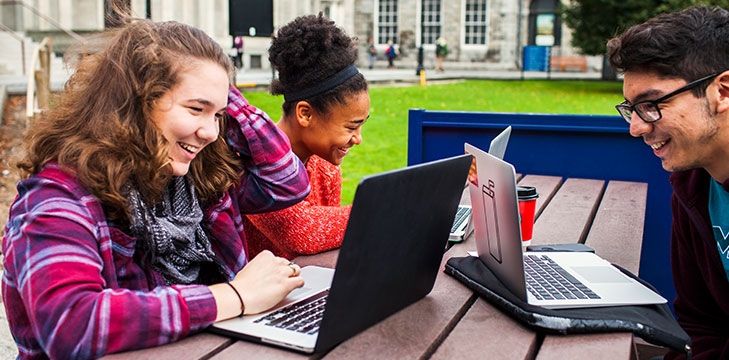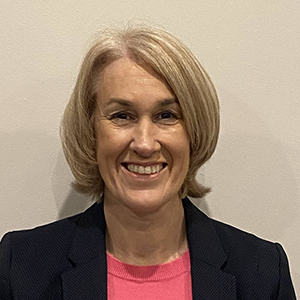Researching international and transnational education students' digital experience
Highlighting alternative perspectives and considering issues that might affect the digital experience of international and transnational education students.

Started
Expected outcome:
Advice
About the project
Building on 18 years of research into students’ digital experience, including seven years of running the digital experience insights surveys, we wanted to first take a deeper dive into the digital experience of international students coming to study in the UK, before doing the same with transnational education students.
To support the HE sector in providing an equitable student learning experience, we wanted to understand the previous experience of our international and transnational education students in accessing and using digital technologies. However, we recognised this wasn't just about access; this was about considering cultural and digital expectations and differences.
What have we done so far?
The first two phases of research looked at the digital experiences of international students who come to study in UK higher education.
The first phase of our research centred on reviewing issues and perspectives from UK HE providers, policy-makers, academic and grey literature, and advocates working in this space. In April 2023, we launched our phase one report.
Phase two has focused on direct consultation with international students in UK HE. From May to July 2023, we ran a cross-institutional survey with 14 UK HE providers, and made ten visits to undertake international student focus groups. The survey generated 2,067 responses and we spoke with 150 students. Analysis of this data, along with recommendations for the HE sector, are in our phase two report, published in November 2023. We have additionally released a set of thematic briefing papers (links below) relating to this second phase.
Briefing papers
- Facilitating holistic conversations about the student experience with international students (pdf)
- Supporting international students’ digital experience: a checklist for providing an equitable and inclusive experience (pdf)
- Comparing international and UK-domiciled student responses in Jisc’s digital experience insights (DEI) survey (pdf)
- Digital country profiles: international students’ digital experiences in relation to their home country’s civil digital infrastructure (pdf)
- Sector examples of improved practice in supporting the digital experience of international students (pdf)
In the third phase of research (October 2024 - July 2025), we are turning our attention to transnational education (TNE) students’ digital experience. In doing so, we are investigating whether international students who stay in their home country (or a country other than the UK) to engage in a UK higher education also experience ‘digital shock’.
Why is this needed?
International students constitute a significant proportion of the overall student population in the UK. In the academic year 2021/22, 680,000 international students were studying at UK universities. At the same time, our members told us the pandemic shone a light on the digital experiences of international students in particular.
The challenges international students faced were not only in relation to access to technology, but also in terms of the expectations UK HE providers placed on its use in teaching and learning. With the pandemic accelerating the use of digital technologies, which can now be seen embedded throughout the student life cycle, there is a clear need to undertake research into the digital experience of international students.
Whilst the composition of international students in the UK has recently seen significant change, the HE sector’s TNE provision continues to grow. HESA reported 576,705 students in 2022/23 studying for awards or courses of UK universities whilst studying wholly overseas. Having discovered in the first two phases of research that international students who come to the UK to study experience ‘digital shocks’ on transition, we are investigating whether TNE students also make digital border crossings.
Next steps
We will:
- Work with partner HE providers to support their use of survey and focus group data to inform service and curricula developments for international students
- Work with partner HE providers to collect new data on TNE students’ digital experience via staff and student surveys and focus groups
- Publish our findings in 2025
Get involved
We have established a sector working group with over 50 members, which aims to build community around this work with membership comprising representation from our partner institutions, as well as sector bodies whose remits support international students in higher education. If you'd like to join this working group please contact Elizabeth Newall (elizabeth.newall@jisc.ac.uk).
- Register your interest to stay informed of our research into international students’ digital experience
- Follow our blog to hear more about our sector engagement
- Listen to our podcast: Beyond the Technology: International students’ digital experience
Meet the project team

Sarah Knight
Director of learning and teaching transformation (higher education)
Elizabeth Newall
Senior sector specialist (digital transformation)
Dr Tabetha Newman
Senior research consultant and CEO, Timmus Limited
Dr Mike Gulliver
Senior researcher consultant, Timmus Research Ltd
Project outputs
- Sector examples of improved practice in supporting the digital experience of international studentsDownload the paper (pdf)
- Digital country profiles: international students’ digital experiences in relation to their home country’s civil digital infrastructureDownload the paper (pdf)
- Comparing international and UK-domiciled student responses in Jisc’s digital experience insights (DEI) surveyDownload the paper (pdf)
- Supporting international students’ digital experience: a checklist for providing an equitable and inclusive experienceDownload the checklist (pdf)
- Facilitating holistic conversations about the student experience with international studentsDownload the guide (pdf)
- International students’ digital experience phase two: experiences and expectationsRead the phase 2 report
- International students’ digital experience phase one: a review of policy, academic literature and views from UK higher educationRead the phase 1 report